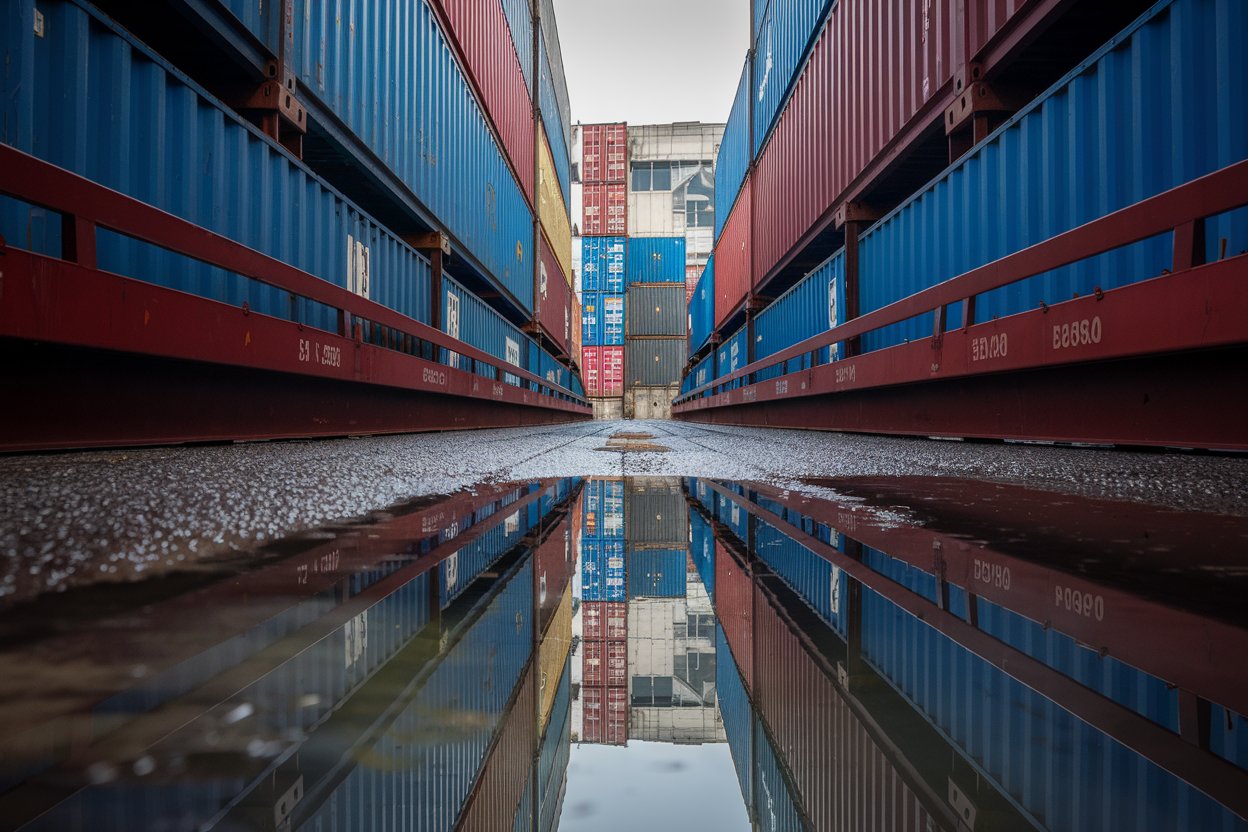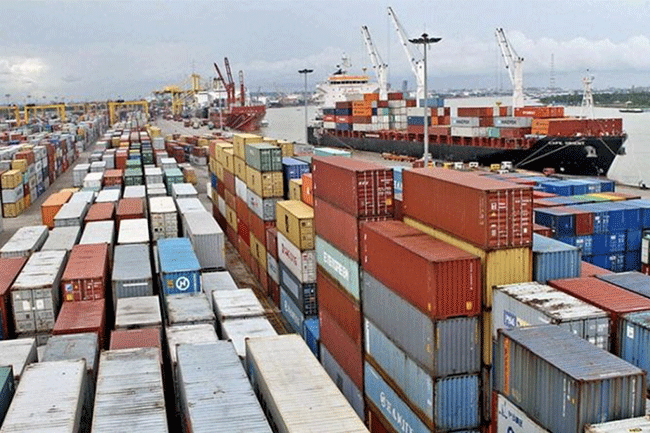- Shanghai Zhongshen International Trade Co., Ltd. - Two decades of trade agency expertise.
- Service Hotline: 139 1787 2118

Introduction
In todays globalized market, the business demand for importing digital thermometers is growing rapidly. Whether for healthcare needs or industrial temperature monitoring, digital thermometers play a crucial role. However, importing them is no easy task, involving complex trade processes, regulations, and logistics. This article will provide a professional, comprehensive analysis of digital thermometer imports.foreign tradeimport and exportMatters.
Document Processing: Professionalism Ensures Efficiency
Document processing is a critical aspect of importing digital thermometers. For companies likeZhongShen International Tradethat specialize in importExport Representationservices, professional documentation handling is the cornerstone of success.
In preparing documents for digital thermometer imports, the first requirement is the Commercial Invoice. This details product descriptions, quantities, values, and serves as key evidence for customs duties. We ensure invoice accuracy matches actual goods precisely. For example, when describing thermometer specifications, we include exact measurement ranges and accuracy parameters.
The Packing List is another essential document. It records packaging details including forms, inner quantities, etc. For precision instruments like thermometers, packaging specifics are vital. We verify quantities per package against shipped goods and document packaging materials to meet customs safety requirements.
The Bill of Lading (B/L) as cargo transport proof is indispensable. We coordinate closely with shipping lines to ensure B/L information matches actual shipments. For temperature-sensitive thermometers, we specify special requirements like temperature/humidity controls on B/Ls for proper handling during transit.
We also emphasize correct trade term usage in documentation. For CIF (Cost, Insurance and Freight) terms, we arrange transport/insurance while ensuring risk transfers to buyers only after goods pass destination port ship rails. This requires clear insurance clauses and freight payment details in documents to prevent trade disputes.
Logistics arrangements: Balancing safety and timeliness
Logistics directly impacts whether imported digital thermometers arrive on time and intact.
Regarding transport modes for thermometers,Maritime Transportationis typically the common choice. Sea freight offers large capacity and low cost but longer transit times. For sea shipments, we evaluate delivery timelines. For non-urgent orders, we arrange FCL (Full Container Load) shipments to ensure security—reducing collision risks for delicate thermometers.
For tighter deadlines, we may considerAir Transportation. Air freight is faster but costlier. We negotiate suitable airline space and ensure proper handling during loading/transit/unloading. Given thermometers sensitivity to temperature/vibration, we require appropriate air transport conditions.
Post-arrival customs clearance is equally critical. With extensive clearance experience, we know various countries regulations. For Southeast Asian markets like Malaysia—where thermometer manuals may require Malay language—we prepare compliant documents in advance for smooth clearance.
Russian market: VTBFX Settlement AgencyThe advantages are obvious
For Russian market thermometer imports, ZhongShens VTB settlement advantages prove particularly valuable.
Foreign exchange settlement is crucial in international trade for secure, prompt payment receipt. In Russia trade, VTB (Vneshtorgbank) settlements offer multiple benefits.
First, VTB has deep roots in Russias financial sector with extensive networks. This enables smoother fund flows and reduces delays from interbank issues. For example, VTB expedites document processing to accelerate fund transfers.
Second, VTB thoroughly understands Russian trade/finance policies. For thermometer imports involving special regulations like certifications or tariffs, VTB helps ensure compliance to avoid legal risks.
In settlement procedures: After closing thermometer deals with Russian clients, payments go to our VTB account. VTB verifies funds, exchanges currency at current rates, and transfers RMB to our designated domestic account—providing detailed settlement documents for financial tracking.
Southeast Asian Market: Detailed Import and Export Processes and Solutions
Southeast Asia offers vast demand for thermometer imports, though processes vary by country.
In Indonesia, thermometer imports require pre-declaration. We submit detailed product info (brand, model, specs) for customs pre-approval on import eligibility.
Before Indonesian port arrival, we submit formalImport Customs Declarationdeclaration forms with accurate value, quantity, origin info plus commercial invoices, packing lists, B/Ls. Customs then conducts further reviews.
For thermometers, Indonesia may require product certifications. While ZhongShen doesnt directly handle certifications, we guide clients on required types and procedures—like helping prepare documents for national standard compliance and coordinating with local certifiers to complete approvals pre-arrival.
In terms of exports, assuming we import components for electronic thermometers from Southeast Asian countries, we need to submitExport Clearancedocuments to local customs before the goods are exported. Similarly, we must accurately fill in the goods information and provide relevant documents. During the export process, we pay attention to the export control policies of Southeast Asian countries to ensure the exported components do not violate local regulations.
For logistics solutions in the Southeast Asian market, we typically choose freight forwarding companies with strong local partnerships. These companies are familiar with local port conditions, transportation routes, and customs procedures, enabling them to better assist us in completing the transportation and customs clearance of goods. For example, at Singapore Port, our partnered freight forwarder can quickly arrange loading, unloading, and transshipment of goods, improving logistics efficiency.
Current International Trade Situation: Challenges and Opportunities Coexist
The current international trade situation is complex and ever-changing, presenting both challenges and opportunities for the import of electronic thermometers.
From the perspective of challenges, the rise of trade protectionism is a significant issue. Some countries may increase import tariffs or impose various non-tariff barriers. For instance, certain countries might enforce strict technical standards and inspection requirements for imported electronic thermometers, increasing the difficulty and cost of imports. We need to closely monitor policy changes in various countries and adjust trade strategies accordingly. For newly introduced technical standards, we assist clients in quickly understanding and meeting the relevant requirements to ensure smooth imports.
The ongoing global pandemic has also introduced uncertainty to international trade. Issues such as logistics disruptions and supply chain interruptions occur frequently. During the import of electronic thermometers, delays in cargo transportation and port congestion may arise. To address these issues, we develop contingency plans in advance, such as selecting alternative transportation routes and ports, and maintaining close communication with suppliers to ensure stable raw material supplies.
However, challenges also bring opportunities. With the acceleration of global digitalization, the development of online trade platforms provides a broader market for the import of electronic thermometers. We can expand our customer base through these platforms and establish connections with more international buyers. Additionally, the rise of emerging markets presents new opportunities. The rapid economic development in some Southeast Asian countries and regions has led to increasing demand for electronic thermometers. We can seize these market opportunities by gaining a deeper understanding of local demand characteristics and offering products and services that better meet market needs.
Product Certification Services: Assisting Clients in Compliance
In the import of electronic thermometers, product certification is a critical step to ensure compliance with the regulatory requirements of target markets.
Different countries and regions have varying certification requirements for electronic thermometers. In Europe, CE certification may be required to indicate compliance with safety, health, and environmental standards. In the U.S., FCC certification is necessary to ensure electromagnetic compatibility.
Although Zhong Shen International Trade does not directly handle certification services, our extensive experience enables us to provide professional assistance to clients. We help clients identify the certification types required for different markets and guide them in preparing certification application documents. For example, when applying for CE certification, we inform clients about the need to provide technical documentation and test reports. We also recommend reputable certification agencies in the industry, assist in communication and coordination with these agencies, and follow up on certification progress to ensure clients obtain the required certifications smoothly and conduct import business compliantly.
In summary, importing electronic thermometers involves numerous complex steps, from document processing and logistics arrangements to settlement and product certification. Each step requires specialized knowledge and experience. With our expertise in import and export agency services, Zhong Shen International Trade provides comprehensive and efficient solutions to help clients navigate challenges and seize market opportunities in the import of electronic thermometers.
Related Recommendations
Category case
Get in Touch
Email: service@sh-zhongshen.com
Related Recommendations
Contact via WeChat

? 2025. All Rights Reserved. Shanghai ICP No. 2023007705-2  PSB Record: Shanghai No.31011502009912
PSB Record: Shanghai No.31011502009912








